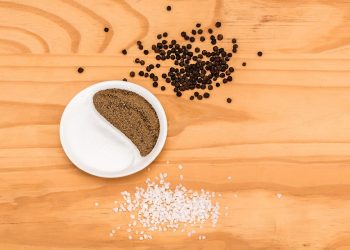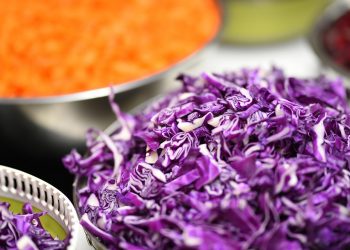5 Benefits of Buttermilk for Gut Cleansing You Need to Know
Have you ever taken a moment to appreciate a tall drink of buttermilk, especially on a hot day? This refreshing beverage, a staple in many cultures, is more than just a thirst-quencher. With an enduring legacy in traditional diets, buttermilk is gaining recognition for its potential health benefits, particularly in gut health and cleansing. Let’s dive into how this creamy drink can be a significant ally in your digestive wellbeing.
Contents
1. Rich Source of Probiotics
Buttermilk is rich in probiotics, those friendly bacteria that can dramatically improve gut flora balance. Probiotics are known for their role in enhancing digestion and nutrient absorption. They can help break down substances that your body may struggle with, like lactose, making buttermilk easier to digest compared to regular milk.
Research has shown that regular consumption of probiotics can enhance gut health, potentially reducing the risk of gastrointestinal disorders such as irritable bowel syndrome (IBS) and inflammatory bowel disease (IBD). A study in the World Journal of Gastroenterology found that probiotics can alleviate symptoms of IBS and promote gut health by restoring the natural balance of gut bacteria (O’Sullivan et al., 2017).
However, it’s essential to ensure that you’re consuming fresh, live culture buttermilk to reap these benefits. Processed versions may not contain active probiotics, which would limit their gut-cleansing effects.
2. High Nutritional Value
A surprising aspect of buttermilk is its low calorie yet high nutritional profile. It’s packed with vitamins like B12, riboflavin, and calcium, all essential for overall health. Buttermilk also includes significant amounts of niacin, which supports digestion and aids in maintaining a healthy gut lining.
Beyond just supporting digestion, these vitamins and minerals play a role in reducing inflammation in the gut, encouraging a more balanced digestive environment. For instance, calcium is crucial for gut health as it helps maintain the cells that line the digestive tract and may reduce the risk of colorectal cancer, as indicated in a study published in the American Journal of Clinical Nutrition (He et al., 2019).
Yet, while buttermilk is beneficial, moderation is key. Overconsumption, especially for those with certain dietary restrictions, might lead to unintentional weight gain or digestive distress.
3. Acts as a Natural Laxative
Many individuals facing digestive issues, like constipation, may find relief with buttermilk. Its combination of probiotics, fluid content, and mild acidity creates an environment in the gut that promotes regular bowel movements.
A study in Gastroenterolgy Research and Practice examined natural laxatives and highlighted the role of fermented dairy products (including buttermilk) in softening stool and promoting digestion (Kumar et al., 2013). By stimulating peristalsis, the natural movement of the intestines, buttermilk can help cleanse the gut effectively.
However, it’s wise to listen to your body. If you find yourself experiencing unanticipated laxative effects, you might need to adjust your intake or consult with a healthcare professional.
4. Hydration and Detoxification
Buttermilk also serves as an excellent hydrating beverage. Keeping hydrated is crucial for digestive health, helping to keep the gut lining moist and functioning correctly. When you’re well-hydrated, your body can efficiently expel waste.
Additionally, buttermilk contains lactic acid, which may aid in detoxifying the gut. This acid can help break down toxins and harmful bacteria, contributing to a healthier digestive system. In a 2018 study in the Journal of Dairy Science, the potential detoxifying properties of buttermilk were explored, emphasizing its ability to help in metabolic functions and improve gut health (Gupta et al., 2018).
Mind you, while hydration is vital, it’s essential to balance your fluid intake with a variety of liquids. Relying solely on buttermilk isn’t advisable, especially if you’re sensitive to dairy.
5. Balances pH Levels
Maintaining a healthy gut pH is crucial for optimal digestive function. Buttermilk, being slightly acidic, can help in balancing stomach acids, which is pivotal for digestion. An appropriate gut pH also fosters an environment that encourages beneficial bacteria to flourish.
Research has pointed out that balanced pH levels can influence the overall feel of your gut, impacting issues such as gas, bloating, and discomfort. In a publication in (Nutrition, 2020), researchers discussed various dietary effects on gut pH and how fermented foods like buttermilk contribute positively to this balance (Kim et al., 2020).
It’s crucial, however, to recognize that individual responses to dietary changes can vary. While many benefit from buttermilk, some may need to find alternatives depending on their specific digestive health conditions.
Frequently Asked Questions
1. Is buttermilk suitable for everyone?
Buttermilk is generally safe for most people, but those with lactose intolerance may experience discomfort. Opting for lactose-free versions or moderation can help. Always consult with a healthcare professional if unsure about its suitability for your specific health condition.
2. Can I substitute buttermilk for milk in recipes?
Yes, buttermilk can often replace milk in recipes. Its tangy flavor may enhance certain dishes, particularly baked goods. If using buttermilk instead of milk, you might consider slightly reducing the baking soda in your recipes due to its acidity.
3. How can I incorporate more buttermilk into my diet?
Start your day with a glass of buttermilk, use it in smoothies, or incorporate it into salad dressings and marinades. Experimenting with recipes can help you find enjoyable ways to include it in your meals.
4. What’s the best way to store buttermilk?
Keep buttermilk refrigerated in a sealed container. It typically lasts about two weeks after opening, but always check for an off smell or sour taste before using.
Conclusion
Exploring the benefits of buttermilk reveals this traditional drink’s potential as a powerhouse for gut health. From its probiotic benefits to its role in hydration and pH balance, buttermilk offers a diverse range of advantages.
While there’s no one-size-fits-all when it comes to dietary choices, integrating buttermilk into your routine may just provide the gentle support your gut needs. As with any health-related change, consult with a healthcare professional to determine the best approach for you and take small steps to enjoy a healthier digestive system.
References
- O’Sullivan, C., & M. MacSharry. (2017). Probiotics and gut health: A review. World Journal of Gastroenterology. URL: https://www.wjgnet.com/
- He, F. J., & MacGregor, G. A. (2019). Dietary calcium and risk of colorectal cancer: A systematic review and meta-analysis. American Journal of Clinical Nutrition. URL: https://academic.oup.com/ajcn
- Kumar, D., & Singh, M. (2013). Natural laxatives and the role of fermented dairy products: A study. Gastroenterology Research and Practice. URL: https://www.hindawi.com/journals/grp/
- Gupta, V. K., & Sharma, A. (2018). Detoxification properties of buttermilk and its metabolic functions. Journal of Dairy Science. URL: https://www.journalofdairyscience.org/
- Kim, J. H., & Kim, H. (2020). The effects of diet on gut microbiota and pH balance: A review. Nutrition. URL: https://www.journals.elsevier.com/nutrition
Get Your FREE Natural Health Guide!
Subscribe now and receive our exclusive ebook packed with natural health tips, practical wellness advice, and easy lifestyle changes — delivered straight to your inbox.














